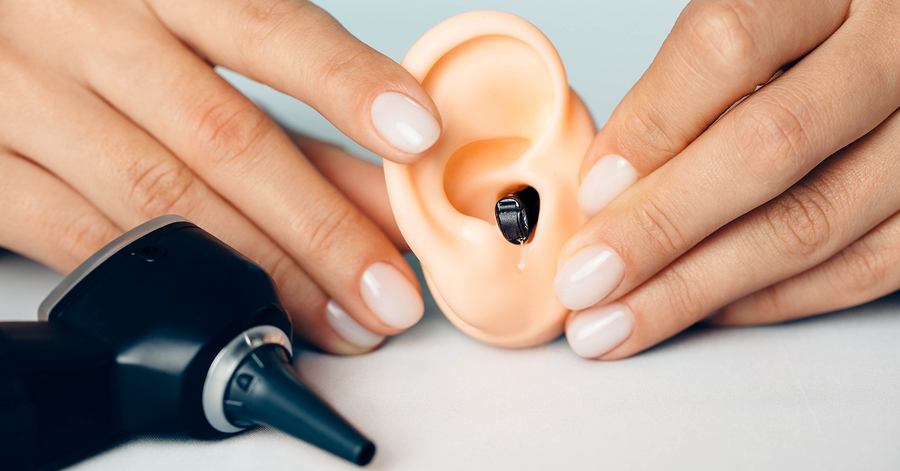According to the National Institute on Deafness and Other Communication Disorders, only 20% of people who would actually benefit from a hearing aid actually use one! While much of this can be attributed to social stigmas of hearing aids, many people do not understand how hearing aids work.
Even so, hearing loss can cause a range of problems, including psychological and cognitive deficits. However, the best way to keep your mind sharp and prevent current hearing loss from worsening is to have early treatment through a hearing screening and hearing aids. Let’s take a closer look at how hearing aids work and a few questions you should ask to know if you may be well served by hearing aids.
How Do All Hearing Aids Work in General?
In general, hearing aids work to selectively amplify the sounds you want to hear. Today’s smart hearing aids almost instantly work to process sounds and remove distractions to create clearer sounds that are easier to understand and hear.
These highly-sophisticated communication devices are often programmed by the hearing care experts at North Shore Hearing P. C. to best meet your unique needs. Depending on the specific hearing aid you choose, the components can include one or more of the following:
- Microphone is where sound enters the system. The directional microphone works to focus on conversations and bolster the understanding of speech even in the presence of noise.
- Also known as the “brain” of the hearing aid, the digital chip is responsible for instantaneously analyzing and converting sounds to deliver the best HD digital sound quality. The digital chip cancels feedback and reduces unwanted background noise.
- The built-in amplifier analyzes and boosts sounds from the digital signal processor, which is where the sounds of speech or music get an additional boost to provide a more natural listening experience.
- The speaker or receiver transmits sound signals through the receiver wire into the ear. Each adjustable ear piece is completely customizable to comfortably fit in your ear canal.
- The hearing aid battery is responsible for providing power. Many hearing aids are powered off lithium-ion batteries with an integrated power cell, which means you will not have to worry about changing batteries later.
- Rock switches control the different settings on the hearing aids. Most hearing aids can be programmed to work automatically or can use the rocker switch to control features like volume, span of directional focus, or programs.
How Do Hearing Aids Work?
Now we’ve discussed the most basic parts of the hearing aids, let’s look at how both analog and digital hearing aids work.
How Do Analog Hearing Aids Work?
Analog hearing aids morph regular sound waves into electrical pulses. These electrical signals are then amplified. Analog hearing aids are uniquely engineered to meet the needs of the user. Each analog hearing aid is programmed to the specifications determined by an audiologist to be the best for the user.
Analog hearing aids can have more than one setting or program. The experts at North Shore Hearing P.C. will program and fine tune your analog hearing aid based on your life. This way you’ll be able to change the program based on your listening environment, such as a stadium, open area, quiet room, crowded restaurant, etc. Analog hearing aids are less expensive than digital hearing aids.
How Do Digital Hearing Aids Work?
Instead of simply amplifying sound waves, digital hearing aids transform these sound waves into numerical codes, very similar to a computer’s binary code. Once converted into numerical codes, the digital hearing aids then amplify them.
This code features critical information about the loudness and pitch of a sound. As a result, digital hearing aids can be programmed to enhance certain frequencies more than other frequencies. Innovative digital circuitry offer audiologists the ability to adjust the digital hearing aid based on your unique needs and based on different environments of listening. In addition, digital hearing aids are able to focus on sounds coming from a certain direction.
Can Hearing Aids Help Improve Your Quality of Life?
How do you know if hearing aids can improve your quality of life? If you answer yes to any of the following questions, hearing aids could potentially help:
- Do friends and guest complain your TV is turned up too high?
- Do you struggle hearing conversations over the phone?
- Do you have problems following conversations when more than two people are conversing at the same time?
- Are you regularly asking people to repeat themselves?
- Do you struggle to hear people when you’re in noisy places?
- Do others seem to mumble or not speak clearly when talking to you?
- Do you often misinterpret what other people are saying to you and inappropriately respond?
- Do you get tired of people misunderstanding what other people say?
- Do you struggle understanding when children and women speak?
Contact North Shore Hearing P.C. for Complete Hearing Solutions
If you suffer from any degree of hearing loss, the experts at North Shore Hearing P.C. can and will help. We offer a full range of innovative hearing aid solutions to help you hear and experience your world more clearly.
Contact North Shore Hearing P.C. today for a free hearing screening.


